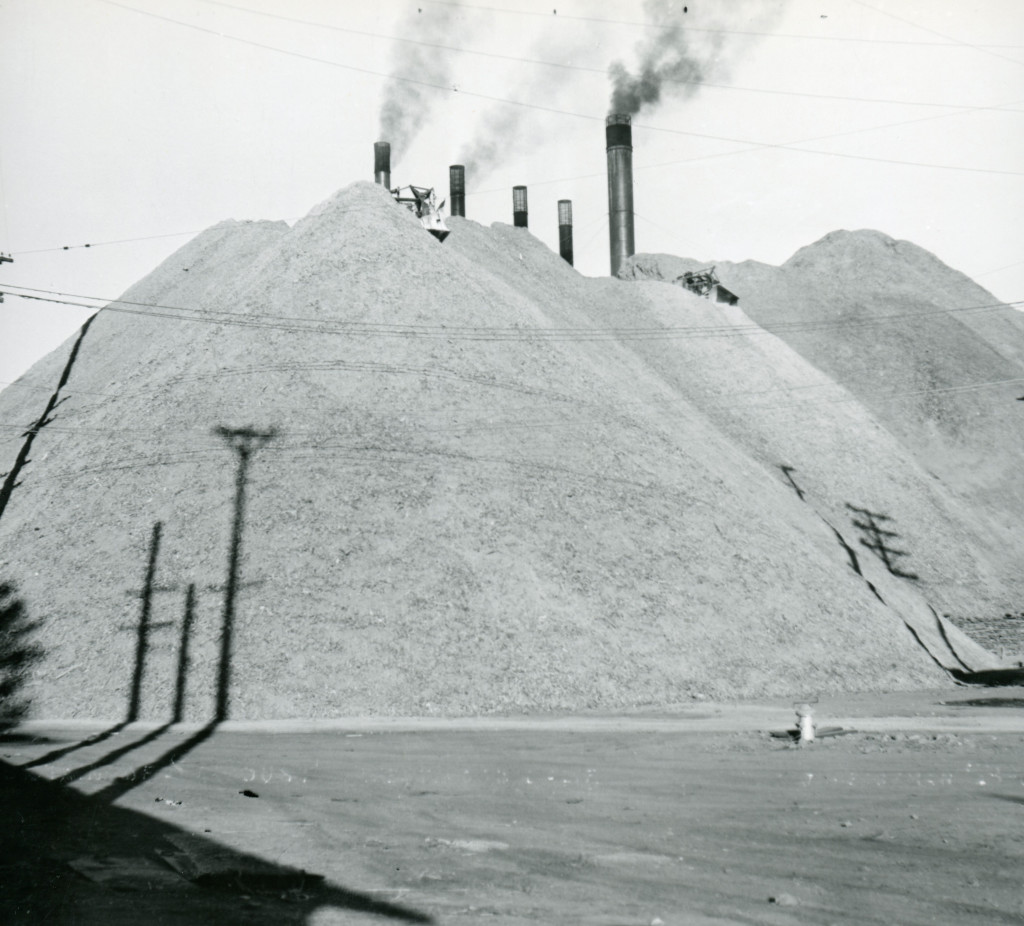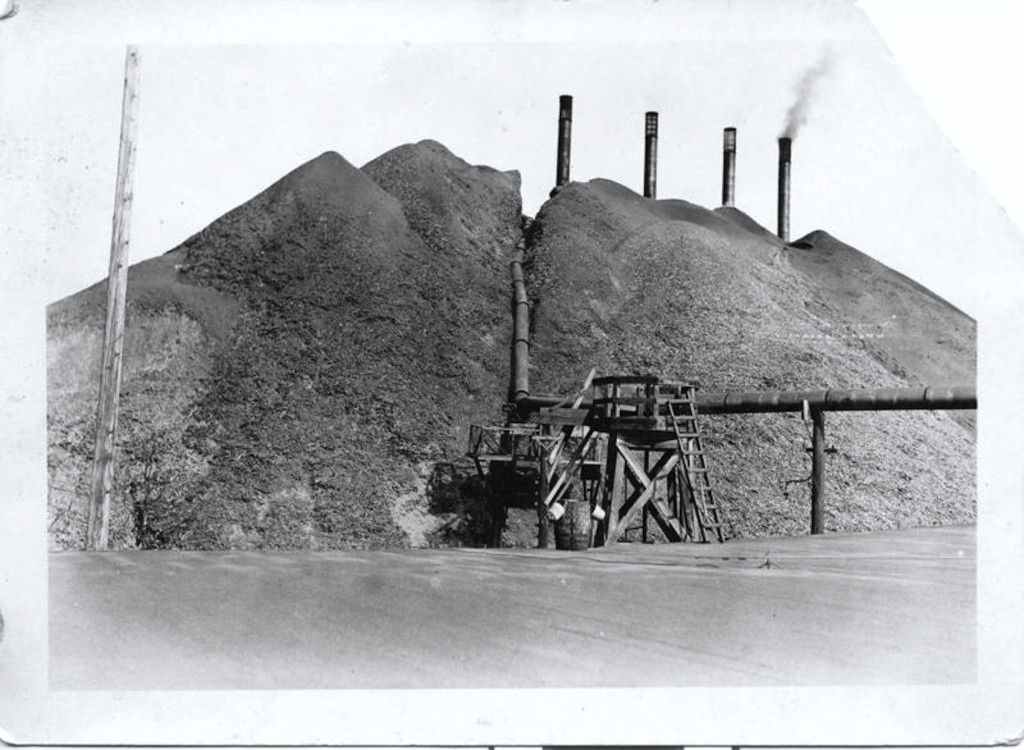In the mid-1920s, Red River Lumber Company had two hydro-plants in operation to generate power for Westwood. This abundant power supply created an unusual man-made landmark. Red River was able to conserve its sawdust/wood waste pile, which took on a life of its own as it started looking like a small mountain. This created a nice reserve of free fuel that was readily available at any time should there by interruptions from the hydro-plants. To comprehend just how large it was, a Ripley’s “Believe it or Not” column once designated it as the world’s largest waste pile. In 1941 it lost its status to Portland General Electric Company who reported having a 130-foot high pile of sawdust.
Anything of this magnitude created its own hazards. One of the first lessons learned was how to prevent it from spontaneous combustion. A conveyer belt, along with a steam shovel and caterpillar tractor were employed to constantly work on the sawdust pile—whether adding to it or feeding the conveyer belt to the power house. It was not unusual for a worker to get trapped in a sawdust pocket where one could easily die from suffocation. While no fatalities of this nature occurred, there was one death attributed to the sawdust pile. On the morning of January 20, 1925 Alexander Gillinkoff was killed when he was struck by a large piece of frozen sawdust while operating a steam shovel.
Red River also explored other ways to utilize this enormous wood waste pile. When the mill operated at full capacity it produced 400 hundred tons of sawdust and wood chips in a twenty-four period, over half of which was used to fuel the boilers in the powerhouse. In February 1927 Red River installed an interesting piece of machinery, one that manufactured the modern day version of briquettes. This impressive device was capable of compressing a ton of wood waste into briquettes every hour. About a third of the wood waste which it compressed into briquettes could be used for home use, camping or even at the plant itself.

